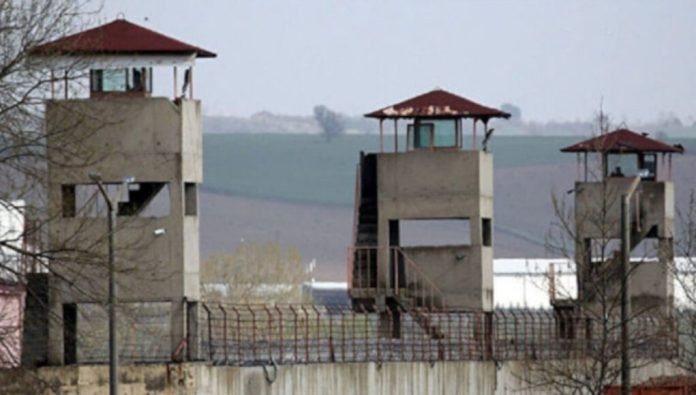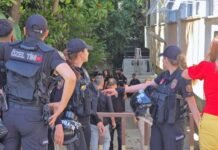Fermani Çetin, an inmate serving a life sentence in northwest Turkey, has seen his parole postponed by six years based on disciplinary penalties that the European Court of Human Rights (ECtHR) had ruled violated his rights, the Mezopotamya news website reported on Friday.
Incarcerated at a Bolu prison, Çetin was sentenced to life in prison in 1993 on charges of attempting to undermine the integrity of the state.
After serving 30 years of his sentence, which is the threshold for parole eligibility for those serving life imprisonment, Çetin applied for conditional release. However, the prison Administration and Observation Board denied his application, citing the disciplinary penalties. The board declared that Çetin was not of “good conduct” due to the penalties and decided to extend his life sentence to the full 36 years.
Administrative observation boards, review bodies established in Turkish prisons in January 2021, have been delaying the parole of prisoners, raising concerns about deepening of persecution of political prisoners.
The boards justify their denial of parole on arbitrary grounds such as “failure to demonstrate remorse,” drawing criticism from rights groups who accuse them of “acting like courts.”
Between 2021 and 2023 the release of a total of 384 prisoners eligible for parole was postponed, according to data from the Human Rights Association (İHD).
On March 26, 2007 Çetin was ordered to spend 11 days in solitary confinement for participating in a hunger strike and addressing Abdullah Öcalan, the jailed leader of the outlawed Kurdistan Workers’ Party (PKK), as “Mr. Öcalan” in his petition, allegedly as an expression of deference.
Since the 1980s the PKK has been leading an insurgency that has claimed the lives of some 40,000 people in Turkey. The group is designated as a terrorist organization by Turkey and its Western allies.
After exhausting domestic legal avenues without success, Çetin appealed to the ECtHR, which ruled in his favor. The ECtHR recognized Çetin’s actions as freedom of thought and expression and ordered Turkey to pay him 3,500 euros in damages on September 4, 2018.
Following the ECtHR’s decision, Çetin sought to have the solitary confinement penalty revoked, appealing to various authorities including the prison administration and the Ministry of Justice but received no response.
In another incident, Çetin was ordered to spend five days in solitary confinement on January 9, 2014 for allegedly damaging a camera in the prison yard. Çetin and his fellow inmates were also charged with damaging public property and sentenced to one year in prison by the Bolu 1st Criminal Court of First Instance. They appealed to the Supreme Court of Appeals, which overturned the sentence upon finding that the camera had not been damaged. Despite being acquitted on November 17, 2022, Çetin’s requests to have the solitary confinement penalty lifted were ignored by the relevant authorities.
Çetin’s lawyer, supported by pro-Kurdish Peoples’ Equality and Democracy Party (DEM Party) MP Nevroz Uysal, brought the case to the parliamentary Human Rights Inquiry Commission (İHİK) and the Ministry of Justice. Uysal emphasized the arbitrariness of the decision and the parallel judicial system created by the Administration and Observation Boards, stating that their actions were contrary to legal norms.















